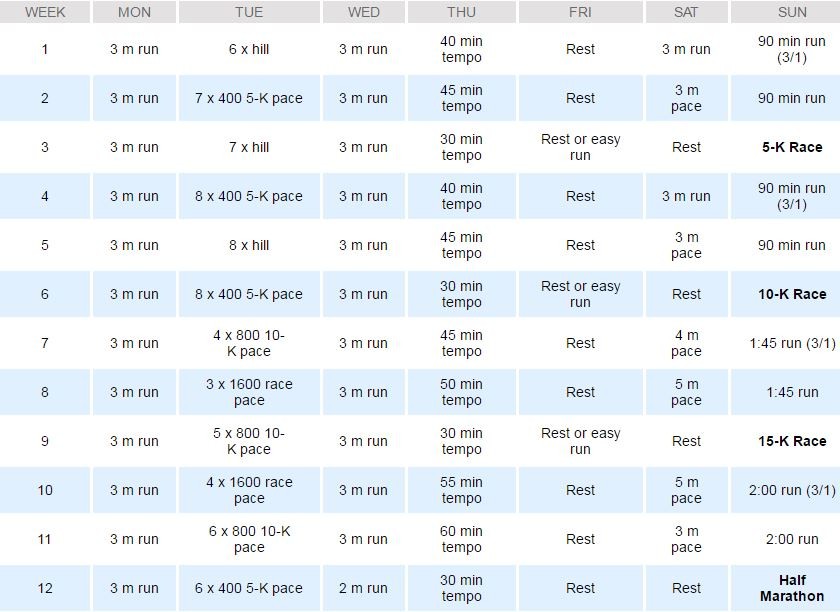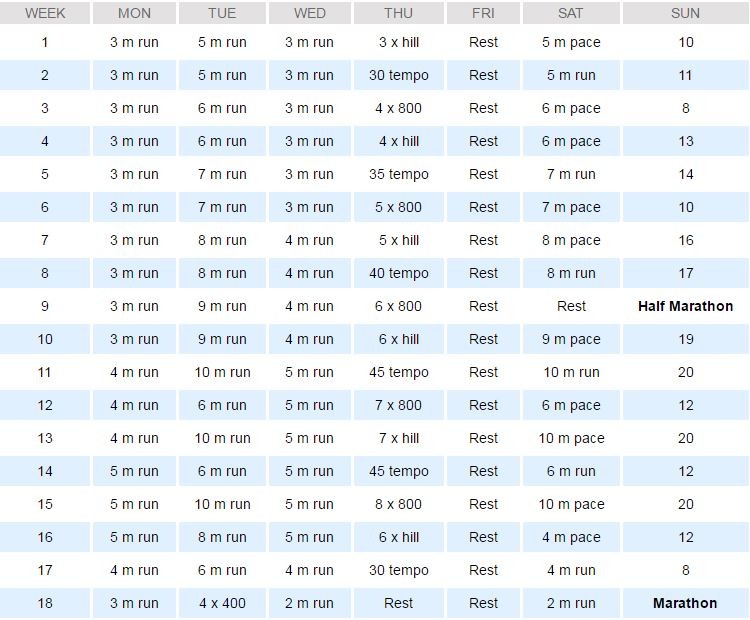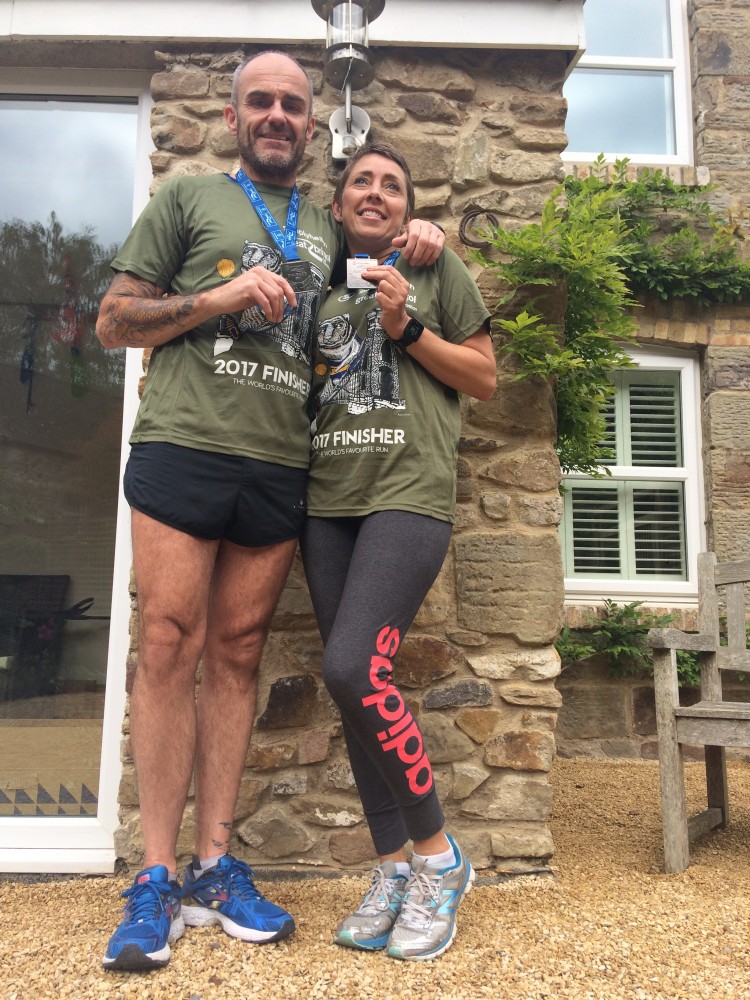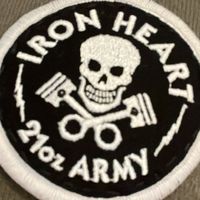Runners
-
No full marathon experience here, I run 5 km every year once in a corporate run, for which I just at present keep procrastinating the commencement of training. Thus sorry I have no hints, but a big thumbs up for your stamina and readiness to do this. Plus the personalised shirt looks, well, like you're a big name and real star at this sort of thing. Which you'll likely become soon….

Best of luck, and do keep us posted!
-
@den1mhead this could be a giant list but I'll try and stick to what is most important.
1. You will most likely be running higher weekly mileage than you have in the past, maybe ever, so it is very important to pay attention to how you are feeling (you're heart rate if you use a monitor) rather than worrying about what pace you typically do easy runs at. The easiest way to overtrain is to run too hard on easy days.
2. Fluids on race day and long runs. The best way to get to know what your body needs as far as hydration and electrolytes is via race pace long runs of around 20 miles. In that time you should be experimenting with hydration volume and energy replacement (Gels, etc.). On race day, especially if you sweat a lot and/or are running the race at a moderate to hard effort, keeping your glucose and electrolyte levels replenished is vital over the last 10 to 15k. And the only way to keep them at proper levels is to pay attention to consumption from the first hydration station on.
3. Pacing: In training you should have developed a strong sense for what pace you are capable of sustaining over the entire race. Early on don't hesitate to be a little short of that. The pace early on will feel effortless so it is very easy to get sucked into running a little faster. Especially if you are in a big group. Better to be conservative early and make up that ground over the second half than vice versa. Going out hard and holding on does not work in the marathon.
Those are my three primary items but I'm more than happy to go into as much detail as you'd like on anything training or racing related. I've done 4 marathons with the first actually being my best due to the fact I started very conservatively. My worst came in the form of running very hard and not properly replenishing which resulted in the most miserable running experience of my life.
-
Cheers @BloodnThunder for your helpful response.
I've been wearing a Garmin Forerunner 10 that doesn't have a HRM function but today I purchased the Garmin Forerunner 35 with a wrist based HRM. Can you expand on "it is very important to pay attention to how you are feeling (you're heart rate if you use a monitor)" and maybe suggest target heart rates that are contingent with different work rates and suited for full marathons? Thanks in advance
-
No problem @den1mhead. Since you recently ran a half marathon now is actually a pretty good time to get a baseline idea of what your heart rate (HR) should be on an easy effort. I would encourage you to go out for an easy run of whatever distance you're used to running on easy days and monitor your rate during each run. The general rule of thumb is to do your easy runs at about 60-70% of your max HR. For most people their max HR is typically +/- 10 bpm of 220 minus current age. I'm 30 so my max would be somewhere around 190. Most of my easy runs were done somewhere around 130 bpm. Note, as you get more fit your body is typically able to recover better and sustain a HR without negative impact (i.e. you are able to train at the higher end of the range as you are more fit and able to recover more quickly).
Outside of occasional race pace simulations a majority of long runs can be done at an effort somewhere in between tempo and easy. These long sustained efforts are one of the primary keys to being ready to race. Typically my HR on long runs would hover in the 140's and maybe climb to the low 150's on hills. Here is an example of a 20 mile long run I did about 2 months prior to the most recent marathon I ran. This run in particular started off with the first half being run at the above mentioned moderate effort of 140's BPM and finished with more of a mild tempo effort in the 150's.
https://connect.garmin.com/modern/activity/917451591For moderate to tempo runs and some race pace long runs you will want to be in the 70-80% of max HR. This is also most likely the range you will want to work to sustain during your marathon (assuming the goal is to push yourself a bit and not just finish). For me this range was between 150 and 165. The following is a link to my last marathon, which was actually my worst marathon experience, but it gives you a good idea of HR vs. pace over an extended period of time. Over the last 7 miles you will start to see both pace and HR declining. This is a result of being completely electrolyte and glucose depleted. Had I sufficiently fueled I most likely would have finished somewhere around 2:27 rather than 2:40. The first 18-19 miles are indicative of the steady even HR you would want to focus on both in training and on race day to keep yourself under control and accountable during the first portions of the race. https://connect.garmin.com/modern/activity/982227401
For short repeats, hill sprints, track work, fartleks, etc. you will be anaerobic for a portion of the workout. This range is in the 80-90% of max range. For me I would be at this level (165-180 bpm) for a portion of each 800/1600 meter repeat in a set during a workout.
I think that covers it but definitely let me know if you need any additional detail.
-
Thanks again @BloodnThunder, you've given some great advice and your marathon times - WOW :o
-
Ha! Thanks. I have heard it takes at least 5 marathons to really figure it out. I'm hoping I am able to take a few more good cracks at it as I really don't want my best time to be my first marathon ever.
-
Ok so I've just put my name down for my first full marathon in York on Sunday 8th October 2017 and was wondering if anyone with experience of running full marathons has any useful tips ? @BloodnThunder, @Chris, @llvlaglne, @summ3rhays, anyone else?
I've done 15 full marathons. My suggestion is to get in cross training a few times a week and never exceed 18 miles. Anything more than 18 miles before race day is a recipe for injury.
-
I've done 15 full marathons. My suggestion is to get in cross training a few times a week and never exceed 18 miles. Anything more than 18 miles before race day is a recipe for injury.
WOW 15 full marathons - that's impressive. Thanks for the good advice summ3rhays

-
Saw this pair of 2010 Brooks Green Silence trainers in mint condition so thought I'd save them for the upcoming Bristol half and York full marathon in September and October this year.

-
They'll help with a quick Brexit!
How's the training going?
-
@Maynard:
They'll help with a quick Brexit!
How's the training going?Love the Brexit gag - Nice

Me and Jules have recently started the Hal Higdon training programme, Jules training for the Bristol half in September and for me; Bristol half in September and York full in October. Early days but its going well.Hal Higdon training programmes;
-
Looks like you have it under control, good luck to you both. I'll stick to my long, slow runs!

-
This is a solid schedule. Personally, two days rest, which I assume means no running, prior to the HM is unnecessary and may actually make you feel a bit heavy or 'off'. I might suggest just heading out for a 2 mile run the day before just to shake out the legs. This is somewhat a personal preference, but the body can occasionally respond negatively to multiple rest days in a row when you haven't taken more than a day off per week in the prior months.
-
^point taken @BloodnThunder. I will employ the 2m "shake out" run on the day before the HM [emoji106]
-
Definitely can do no harm. You will be in pretty good shape by the time of the HM so a 2 mile easy run is not going to cause you to be any less fresh on the day of the race.
-
Me & Jules completed the Bristol Half Marathon today. I was running in support of Jules who improved her PB from 2 hours 20 minutes (March 2017 at the Bath Half) to 2 hours 13 minutes today at the Bristol Half, an improvement of 7 minutes which is amazing

I'm running in my first full marathon in York in 3 weeks, more to come . . . . . -
Awesome. Congrats to you both. What a stellar achievement, @Black Orchid – great work!
-
Thank you sabergirl and neph… feel like it's my Kanreki at the mo.. no offence G [emoji57]
pint ( or two ) and slippers for me this afternoon x





